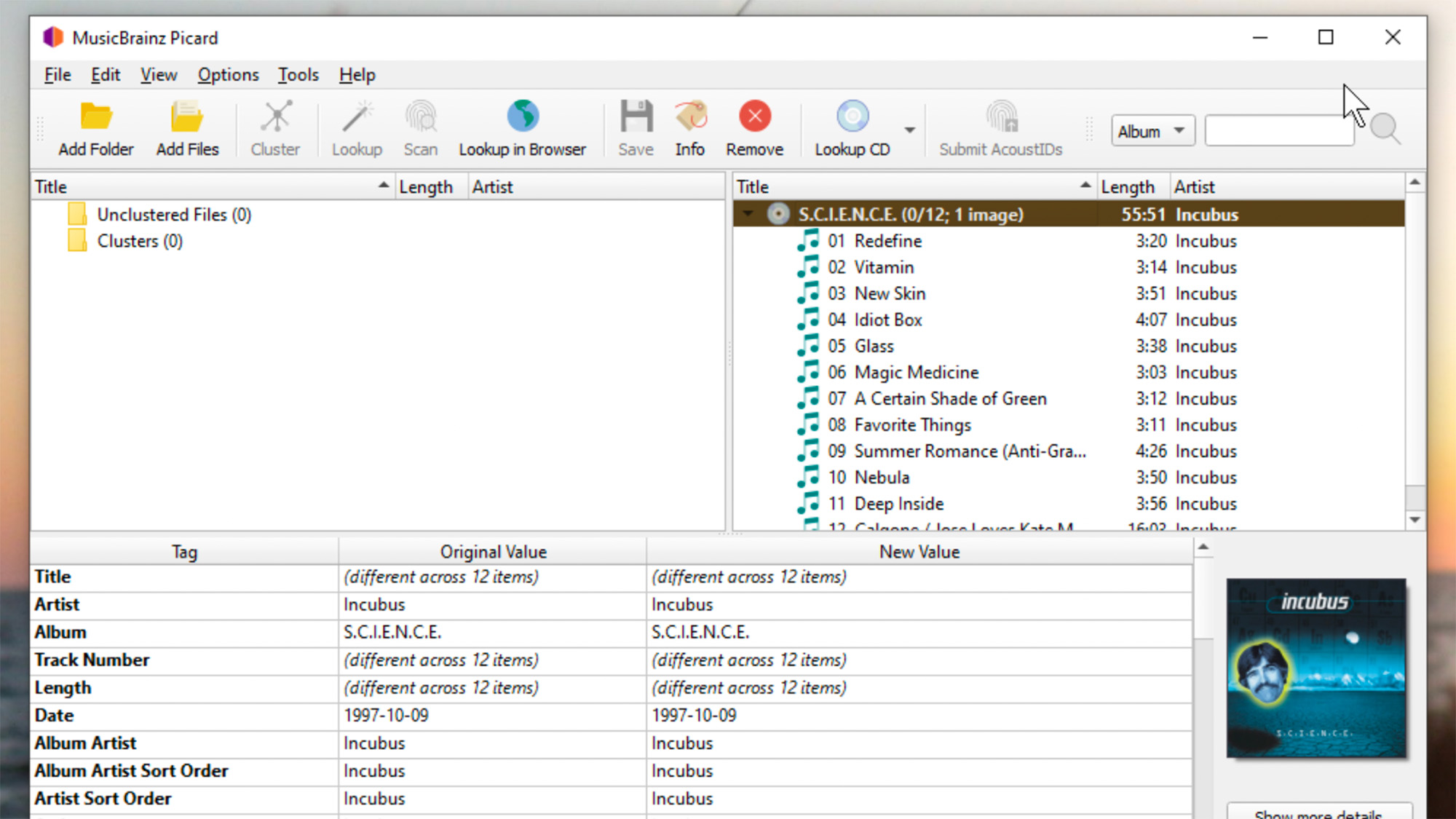

We’ve all got messy, unlabeled music files cluttering up our collections. You might have gotten them from questionable sources in the early 2000s, ripped them yourself but were too lazy to tag them, or just didn’t care for a neat library at the time.
But instead of spending hours righting this wrong, you can use MusicBrainz Picard, a free and open-source application that will do all the track and album labeling for you. This program can identify any audio file—including MP3, FLAC, Ogg Vorbis, and more—tag it accurately, and even rename it with just a couple of clicks. Picard identifies tunes in seconds using two methods: a sort of fingerprinting system for recorded music called AcoustID, and the developer’s own crowd-sourced database that includes track names, albums, and artists.
[Related: Clean up your computer’s embarrassingly messy desktop]
This gives MusicBrainz Picard a vast pool of information to draw from, but also some limitations, as its database mostly only includes music that’s seen a wide commercial release. As a result, the software won’t be able to properly identify a recording of your high school band performing songs from Les Misérables, or a CD of your mom singing reggae versions of Bob Dylan songs (but please send me that CD, it sounds amazing).
Get started with MusicBrainz Picard
Using MusicBrainz Picard couldn’t be easier. Just open the program and simply drag any folder of music that’s not properly tagged onto the interface: it doesn’t even matter if you’re not sure what the music is.
Your tracks will automatically show up in the left panel. Click the Scan button at the top of the interface and Picard will attempt to identify your music and download the appropriate metadata for it. After a few seconds, your files will appear on the right panel with the right labels indicating the track’s name and number, and the name of the album they belong to.
A color-coded bar to the left of each track shows you how confident Picard is about the information it found—green means you have a great match, while red indicates the software might have gotten it wrong. If everything looks fine you can click the Save button in the toolbar. This will edit your files’ metadata, adding the correct tags and even the album art to each one. All of the details should automatically show up in your music player of choice but if it doesn’t, you might need to refresh the library or reload the files.
Picard also lets you rename all files if you want to—just click Options in the toolbar and check the Rename Files option.
By default, this feature will replace file names with the track number of each song followed by its title, but you can customize this setting by choosing a different File naming script in the menu. This will allow you to include details such as the artist’s name and album if you like. If none of the scripts work quite the way you like, you can always write your own—just click Open file naming script editor.
MusicBrainz Picard can label any music CD
Did your friends burn CDs for you back in the 90s? Have you left them in your car since then, only to forget what they are? MusicBrainz can identify them for you, assuming you have an optical drive. Just insert the disc into your computer, open the program, and click the Lookup CD button in the toolbar. The software will look into the tracks on the disc and automatically identify them—it doesn’t matter if it’s a single album or a compilation.
